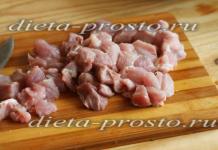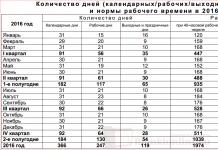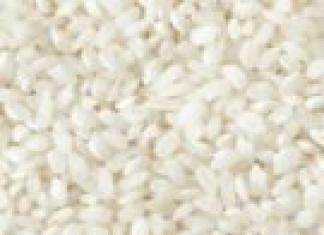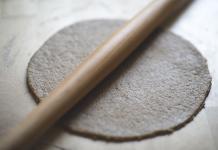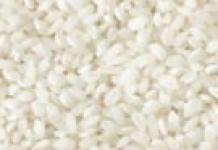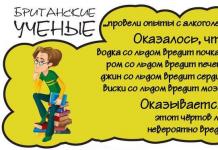Colic in a child in the first months of life is one of the the most common problems.
In a broad sense, this condition represents pain of varying degrees of intensity, provoked by the formation of an increased amount of gases in the intestines.
Colic may be a natural reaction of the baby's digestive system or it may be a sign of dysfunction.
This condition can be eliminated in several ways, but the factor that provoked it must be identified. We will talk about the symptoms of colic in newborns in this article.
How to recognize volvulus in a child? Find out about this from ours.
Concept and characteristics
Colic is a specific spasm of the smooth muscles of the intestine, which accompanied by painful attacks.
In children in the first year of life, this condition in most cases is not an independent disease and indicates a natural weakness of the digestive system.
If colic occurs in a child at an older age, then the spasm may indicate the presence of serious abnormalities in the functioning of the gastrointestinal tract.
Causes of occurrence
Colic is always provoked by certain external or internal factors.
In most cases, their cause is disruption of the feeding process a newborn or infant, errors in the diet of a nursing woman or baby if he is bottle-fed, as well as a number of other nuances.
In some children, colic may appear under the influence of the individual characteristics of the body. The presence of specific reasons in this case cannot be identified.
Causes of colic in children the following factors may be involved:

For serious reasons Colic in a child can be caused by congenital diseases of the digestive system, food poisoning or infection. In some cases, pain in the intestines is provoked by colds.
The most dangerous cause of colic is intestinal obstruction. This pathology may be congenital.
In the presence of such factors, it is impossible to normalize the baby’s condition using common means. The child needs comprehensive medical care.
Products causing the problem
There are certain foods, the presence of which in a nursing mother's diet significantly increases the risk of colic in the baby. If remove them from the menu, then the baby’s condition returns to normal within 24 hours.

Provoke colic The child may have the following foods in the mother's diet:
- nuts;
- cabbage;
- spicy seasonings;
- tomatoes;
- radish;
- radish;
- mushrooms;
- caffeine;
- corn;
- garlic;
- black bread;
- grape;
- milk products;
- carbonated drinks.
What are the dangers of constipation for a child? find out right now.
At what age do they begin and when do they go away?
In most cases, colic occurs in children from the second to the fourth week after birth.
If this condition is not a sign of a serious abnormality in the functioning of the digestive tract, then by four months of life the functioning of the digestive organs is normalized.
Colic can occur in completely healthy older children as a reaction to the first feeding or introduction of new products into the diet, characterized by difficult digestion in the intestines.
How can you tell if your baby has intestinal pain?

Identifying colic in a child is not difficult. This condition accompanied by specific symptoms.
However, in some cases, signs of colic may coincide with the manifestation of diseases of the digestive system in a child.
To establish an accurate diagnosis and assess the baby’s condition, the help of an experienced specialist may be required.
Symptoms of colic The child has the following conditions:
- When crying, the baby presses its legs towards its tummy.
- Appetite before and after colic is not affected.
- The child cries shrilly and shows anxiety.
- The baby's skin may suddenly become pale.
- While crying, the baby turns red and clenches his fists.
- The stool may take on a green tint and a slimy consistency.
- A colicky baby's tummy becomes hard.
- After feeding, the baby begins to cry.
- The presence of gas formation is indicated by the rounding of the abdomen ().
- In most cases, colic appears at the same time every day.
Help for babies
Despite the fact that colic can be a natural reaction of the baby’s body, providing assistance to the child cannot be ruled out under any circumstances.
How to help a child with colic? There are many ways to normalize the state of the digestive system of a newborn or infant. If independent attempts do not lead to the desired result, then you need to contact an experienced specialist.

Options for dealing with colic in a child:
- Before and after feeding(before feeding, the baby should be placed on a hard surface on the tummy; after eating, it is necessary to hold the baby in an upright position for some time, it is advisable to wait for regurgitation).
- Compresses(you need to iron the diaper with an iron and then apply it to the baby’s tummy; in this case it is not recommended to use a heating pad).
- Massage(to eliminate colic, it is enough to regularly make clockwise stroking movements along the baby’s tummy, U-shaped stroking and stroking along the tummy with light pressure on it).
- Gas outlet pipe(before the procedure, the child’s anus must be lubricated with Vaseline or vegetable oil, one end of the tube is inserted into the anus with a rotational movement, the second is lowered into the water, characteristic bubbles in the liquid will indicate the release of gases).
Treatment methods for colic in children vary. Some experts recommend that new mothers perform activities that are not pediatric procedures.
For example, pleasant music can distract the child, and the attack of colic will pass with less intensity.

Pharmacy drugs and folk remedies
What to give a child for colic? Medicines against colic in a child are divided into two categories - for the prevention and relief of this condition.
The first group includes Plantex, Baby Calm, Babynos and Dill water. Helps relieve pain from colic Espumisan, Bobotik and Sub Simplex.
These pharmaceutical products are predominantly herbal based and do not harm children even of the youngest age.
Examples of folk remedies to combat colic:
- Fennel tea(a teaspoon of fennel seeds should be crushed in a mortar or crushed in other ways, pour a glass of boiling water and leave for one hour, give the baby a teaspoon of tea before each feeding).
- Dill water(one teaspoon of dill seeds should be poured with a glass of boiling water, the preparation should be left for an hour, the daily dosage for a child should not exceed three tablespoons, a new decoction should be prepared daily).
- Chamomile decoction(pour a teaspoon of dry chamomile mixture into a glass of boiling water, leave and cool, give the baby a teaspoon of the decoction several times a day).

If a child's colic is more intense, then stronger medication may be needed.
For example, when a fever appears, it is recommended to give the baby Paracetamol, with regular strong cramps in the intestines - Enterosgel, Lactofiltrum or Kuplaton. Only a doctor should prescribe such medications after a full examination of the baby.
What can a nursing mother eat?
There is a special diet designed for women during lactation. Diet restrictions include only the exclusion of foods that can harm the baby’s digestive tract.
In the diet of a nursing mother must be present the following food products:
- cottage cheese and fermented milk products;
- boiled vegetables;
- compotes and jelly;
- hard-boiled eggs;
- lean varieties of meat and fish.
You will find specialists in the treatment of dolichosigma intestines in children on our website.
Does the formula need to be changed?

If colic appears in a bottle-fed baby, it is necessary replace the mixture used.
Baby food products differ in composition.
Among their range there are special mixtures designed for children prone to problems with the digestive system. About this nuance manufacturers make marks on product packaging.
When a child has colic give preference follows the following types of mixtures:
- containing lactic acid bacteria;
- with the addition of probiotics or prebiotics;
- hypoallergenic options;
- palm oil free;
- containing lactulose.
Failure to treat colic in a newborn or infant can cause the development of digestive diseases in older age.
Despite the fact that this condition is a natural reaction, it must be treated promptly. absolutely necessary.
In addition, severe crying and constant anxiety can cause harm to the baby’s body. Such factors will negatively affect the state of the baby’s nervous system.
What to do if your baby has colic? Find out about it in the video:
We kindly ask you not to self-medicate. Make an appointment with a doctor!
Hello, Lyudmila. Help us resolve one issue that my husband and I are arguing about. Our son turned one month old, and I began to notice changes in his behavior. He often cries, curls up his legs and is capricious. Sometimes he even refuses to eat, and then suddenly calms down.
In general, by all indications, it looks like he is suffering from colic in his tummy. My mother-in-law thinks so too. But this is where our unanimity ends. She says that the main reason for this condition is increased formation of gases in the intestines and therefore the baby needs to be treated with diet, dill water and a gas tube.
But I am inclined to think that such problems are associated with the whole body getting used to new conditions, and this process cannot be disrupted by outside interference.
But I’m a young mother, and my mother-in-law has already raised two children. My opinion cannot compete with her parental authority. Need professional recommendations. Please explain for what reasons colic occurs in a newborn, and who is right about what to do to alleviate the baby’s condition.
What is colic
Of course, interfering in a dispute between mother-in-law and daughter-in-law is a thankless task. Therefore, I will not undertake to judge you. But I can provide a qualified look at the nature of the origin of colic in newborns and, accordingly, the correct actions of parents in such cases.
First of all, I note that all experts agree on the natural causes of abdominal colic in newborns. They are considered as one of the manifestations of the adaptation process during the period of adaptation of the baby’s body to new conditions of existence, a new environment.
Until recently, it was believed that colic was associated exclusively with the restructuring of the gastrointestinal tract and the formation of beneficial microflora in it. Nowadays, the opinion about the neurological nature of the origin of such spasms is gaining more and more popularity. Scientists provide evidence that colic can be considered a “companion” of headaches (migraines).
I will not go into the scientific details of the explanations for this statement. But many adults will confirm that under severe stress a person experiences serious discomfort, one of the symptoms of which is cramps and pain in the stomach.
It is quite possible that the baby is also experiencing a huge nervous shock from the abundance of new impressions that literally fall upon him in the first months of life. After all, it is precisely during the period when colic begins in a newborn that he gradually comes to realize himself as a separate being from his mother. He understands that he is now on his own and must ensure his own livelihood.
Imagine a similar situation. How will you feel after suddenly finding yourself on another planet, where you even need to breathe differently? Of course, you are guaranteed to panic with all the accompanying symptoms.
Agree that the described condition is very similar to what a newborn should experience. Also fitting into this “symptomatic picture” is the fact that in all babies colic begins at exactly the same period and goes away abruptly in all of them, regardless of the intensity and quality of treatment (whether the baby’s parents give the baby dill water or nothing at all). do it - colic disappears).
Thus, we have two theories regarding colic in a newborn, and, accordingly, recommendations on what to do. Both have their supporters. Moreover, the second theory, thanks to modern medical research, is receiving more and more confirmation.
Signs of colic
The main symptoms of colic in a newborn are related to the condition of the tummy. He becomes tense and bloated. There are other symptoms:
- the baby draws up his legs;
- sometimes releases gas;
- may try to push;
- his stool changes.
In addition, noticeable changes occur in the child’s behavior. He:
- becomes moody and restless (especially immediately after feeding);
- often, for no apparent reason, begins to cry;
- does not calm down for a long time;
- may temporarily refuse to eat.
Typically, colic manifests itself in the form of attacks that periodically “roll up”, and then relief comes.
Causes of colic
So, based on the information above, it follows that there are two types of causes of colic.
Causes associated with intestinal problems:
- The baby is born with a sterile intestine, i.e. it does not yet contain those beneficial bacteria that accompany and facilitate the digestion process. Therefore, this process occurs with certain difficulties;
- During the period of microflora creation, the balance of beneficial microorganisms often changes. Exceeding the concentration level of certain species can cause discomfort in the gastrointestinal tract and lead to the development of dysbacteriosis;
- A lack of food enzymes due to improperly organized breastfeeding can cause false lactase deficiency. To avoid this, you need to breastfeed correctly, change breasts during feeding on time and follow the rules of breastfeeding.
I will explain these rules to you in more detail in the course Secrets of Breastfeeding >>>.
This is an online course, which means you and your baby don’t need to travel anywhere. You will watch the course at home and start feeding your baby correctly, this will reduce the occurrence of colic.
- When eating or crying, the baby may swallow air, which enters the intestines.
Also, colic in a newborn during breastfeeding is associated with errors in the diet of the nursing mother. There is an opinion that there are certain foods that cause colic in newborns. These include:
- vegetables: cabbage, onions, tomatoes, corn. Read more about what vegetables a nursing mother can eat?>>>;
- nuts;
- cow's milk and products made from it. Find out from the article, is milk ok for a nursing mother?>>>;
- products containing caffeine;
- dishes with spicy seasonings.
Causes associated with migraine:
- Sleep disturbance: lack of sleep, excess, disruptions in sleep rhythm (read the current article: The child sleeps for 20-30 minutes >>>);
- Psychotraumatic situations: sharp sounds, bright lights, strong odors, cold, etc.;
- Ignoring the diet and improper diet of a nursing mother;
- Hormonal imbalances;
- Change of weather.
I would like to draw your attention to the fact that all of these reasons are associated with natural processes that inevitably occur in the body of a newborn. In no case does the occurrence of colic indicate the development of any pathologies or problems with the baby’s health.
When does colic appear and go away?
Colic is a temporary phenomenon. They usually occur in a baby 3 to 4 weeks after birth. The length of time colic lasts in newborns may vary. Typically, 1 to 4 hours of crying are the main sign that a baby is suffering from colic and gas.
This period can last from 6 to 8 weeks. The latest period when colic in newborns goes away is 4 months of age.
How can I help my child?
And now the main question, which, as I understand, is the main subject of your dispute: how to get rid of colic in newborns. Here I am completely on your side, and on the side of the various manufacturers of colic drugs.
For more information about this, see my short video tutorial about colic in a newborn:
 The effect of dill water, as well as tea containing fennel, anise, cumin or lemon balm, can be compared with the results from taking a placebo. In the same way, medications that are prescribed to eliminate colic in a newborn do not affect the causes that provoke these spasms.
The effect of dill water, as well as tea containing fennel, anise, cumin or lemon balm, can be compared with the results from taking a placebo. In the same way, medications that are prescribed to eliminate colic in a newborn do not affect the causes that provoke these spasms.
Moreover, they can be harmful. It is important to understand that colic occurs during the formation of the body’s ability to function independently. Any artificially introduced components will only disrupt and “knock down” this process.
Some mothers start giving medications containing bacteria and enzymes necessary for digestion. However, the body will reject them, they will not take root in the intestines and will not multiply there, as many mothers think. No, these medications, like all others, give a temporary effect and are completely eliminated from the body.
Breast milk contains all the necessary bifidobacteria and lactobacteria that help intestinal maturation. Focus your energy on proper breastfeeding. You will find a lot of useful information on this topic in the article How to properly breastfeed a newborn?>>>
This is how nature intended and how it should be. Giving a baby drugs can only worsen the already immature intestinal microflora. 
Remember, there are not many effective ways to treat colic in newborns. I will tell you more about what really helps during colic and gas, as well as the secrets of helping a child with anxiety in the online course Soft tummy: getting rid of colic in a baby >>>
However, I in no way advocate doing nothing at all and simply waiting for the colic period to end, helplessly watching the suffering of the newborn.
The mother can significantly alleviate the baby’s condition during this period. After all, the most important thing that helps with colic in newborns is the love, care, and guardianship of their parents. The child needs to be made to feel that the connection with his mother is not completely severed, that he is not left without support.
- Provide constant tactile contact. Take the baby in your arms and hold him close. You can place the baby on your stomach and stroke his back;
- Breastfeed. The process of sucking itself, the feeling of warmth from your body, and the beneficial components of mother's milk - all this will only improve the condition of the newborn. You can apply to the breast very often without observing certain time intervals;
- Protect from stress. Use “white” noise to calm your baby (read the article: White noise for a newborn >>>). When sleeping at night, create twilight in the room. Do not expose to sudden cold (leave the hardening procedure for a later period);
- Provide a cozy, comfortable environment so that the newborn feels protected;
- Give a massage for colic in a newborn. This way you will stimulate intestinal motility. In addition, soft stroking movements bring pleasant sensations and provide an opportunity to relax. The baby will feel a similar effect if you put a warm diaper on his stomach.
I would like to note that during the period of colic in a newborn, the mother has to spend a lot of effort and patience. This is very exhausting, so you will need support from loved ones. Ask for help with everyday tasks while you care for your baby and help him through difficult periods of infantile anxiety.
This phenomenon affects almost every baby, but always comes unexpectedly. The first two weeks after birth, parents get used to their new role, to the fact that they need to wake up several times at night, but in general they are pleased with the baby’s condition: he eats well and sleeps sweetly.
But then, like a bolt from the blue, they appear: intestinal colic in newborns. Where do they come from? How to recognize them in time? And most importantly, how to deal with them. This is the topic of our article.
Symptoms
The following signs are characteristic of colic in newborns. So:
- The baby screams piercingly, sometimes heartbreakingly, for several hours without a break; in the evening there comes a climax, when the whole family is tense, and there is nothing special to help. At the same time, during the day the child ate with appetite and there was nothing to indicate that he was sick.
- The baby brings her legs to her tummy, thus trying to reduce spasms in the intestines, her face turns red.
- Restless behavior almost always begins some time after feeding.
- There is bloating in the tummy, and sometimes gases escape.

Colic is a temporary phenomenon. They will definitely pass
According to statistics, this painful condition affects about 70% of newborns. Colic in infants begins approximately at the 3rd - 4th week of life and stops after 3 months. Not all infants experience attacks of pain equally.
An interesting fact is that first-born children suffer more often from colic, and more boys are affected. This is partly due to the fact that a pregnant woman who is overly worried about the child, his health, as well as how the birth process will go, experiences stress. Perhaps it affects the child at the hormonal level.
Colic in babies occurs almost every day, only in some they occur from 3 to 5 hours a day with breaks, in others the pain exhausts them for 8 hours a day (with a duration of 1.5-2 hours and short breaks), completely exhausting them. both the child and his parents.
Until now, medicine does not know the true reason why colic occurs in a newborn, as well as an effective way to treat it. There are speculations about their origin. There are also methods that help relieve pain symptoms, but do not completely eliminate them.
The good news is that colic is a temporary phenomenon, sooner or later it will go away. Another positive point is that in most cases this is not a disease, but only a painful condition that needs to be overcome. At the same time, the baby eats with appetite and gains weight well. Therefore, it takes time and patience to overcome such difficulties in life.
Causes of intestinal colic
As already noted, the real cause of colic is still unclear. But there are known factors that can provoke and intensify pain in young children.
- Incorrect nipple latching. This position leads to the swallowing of air, which, if it does not directly cause colic, certainly aggravates the situation. The problem is technical. As soon as the baby learns to grasp the entire nipple along with the areola (and you help him with this), the sensations will become less painful.
- Inappropriate nipple on bottle when bottle feeding. Perhaps the hole is too big and you just need to change the pacifier. There are also bottles with an anti-colic valve that prevent air from entering the baby's tummy.
- Lying for a long time. The human body is designed in such a way that food (even with air bubbles) moves faster through the intestines and is evacuated from it when a person is in an upright position. And since the newborn is forced to lie down most of the time, pain and spasms occur. The solution is to carry the baby in your arms more often, after feedings, hold him in a “column” until the air trapped inside escapes.
- Overfed. If there is too much food, the enzymes do not have time to digest it. The fermentation process begins. As a result, the same gas formations put pressure on the intestinal walls. Conclusion - do not overfeed, there is no need for excessive care here.
- Long continuous crying. Quite a serious problem, reminiscent of a vicious circle. The child, experiencing severe pain, begins to cry, while involuntarily swallowing further portions of air, which leads to a worsening of the situation. The task is to calm the baby as quickly as possible by all available means.
- Colic as a symptom of the disease. Sometimes spasms in the intestines in infants indicate the presence of a disease of the digestive tract. For example, food allergies or digestive problems due to lactase deficiency are accompanied by colic. Enterocolitis, characterized by inflammation of the intestines, also causes infant crying.
- Incorrect mixture. Infant colic may be the result of feeding too concentrated or the wrong formula. In view of this, pediatricians recommend choosing formulas based on fermented milk products with a low iron content.
- The mother does not follow the diet. If the baby is breastfed, the mother's nutrition directly affects the well-being of the infant. It has been proven that certain substances can penetrate into milk. Therefore, it is important to know foods that cause flatulence.

Hold the baby in your arms more often, carrying it vertically
Provocative products
- milk (can be replaced with fermented milk products);
- raw or sauerkraut;
- black bread (an alternative is whole grain bread);
- legumes (it is recommended to consume cottage cheese, lean meat, and cheese in small quantities as a source of protein);
- kvass;
- fresh apples, pears (optional, baked apples).
The diet of a nursing woman, of course, should be varied; you can eat almost everything, little by little. But if your beloved child suffers from intestinal colic, the diet for the first three months should be followed at least in terms of the listed products.

If a child has colic, a temporary taboo on certain foods is introduced
What are the dangers of prolonged colic?
When colic torments a child for quite a long time, new negative aspects of this condition appear:
- The baby’s nervous system is overloaded, overexcitation leads to new intestinal spasms and a slowdown in its functioning. As a result, the intestinal walls are stretched and the pain intensifies.
- Prolonged spasms and pain can provoke disturbances in the functioning of the gastrointestinal tract, so it is important to determine why intestinal colic occurs and how strong its intensity is in order to consult a doctor in time.
- Frequent, hysterical crying, increased gas formation lead to an increase in intra-abdominal pressure, the abdominal muscles are tense. As a result, the baby may “scream” at the umbilical hernia.
How to behave as parents
A familiar picture: a baby cries and bends over in pain, and is held in her arms by a sobbing mother, who feels sorry for both the child and herself (after all, her head is splitting from screaming). What to do?

Mom can't lose her composure
During an attack of colic, control yourself. Tears will not help in any way; on the contrary, the baby will feel that there is nowhere for him to expect help, even moral. Don't get angry and yell at your child. It's not his fault that he feels bad. Most of all, he needs your support and care. Try different methods to relieve pain and never give up.
How can I help my child?
Here are some tips to combat colic:
- Do a daily massage in the navel area in a clockwise circular motion and stroke your tummy.
- During an attack, apply heat to your stomach. This can be a diaper ironed, but you just need to make sure that it is not too hot. As an option, mom's or dad's warm palm will do.
- Before feeding, place the baby on the tummy, and after - hold it upright. During the day, carry it in your arms more often, following the baby-carrying technique.
- Use a sling to carry your baby - it both prevents hip dysplasia and provides movement, which is good for bowel function.
- Call a lactation consultant to make sure you're doing it right.
- Use the gas outlet tube. Unfortunately, it is only effective for removing gases accumulated in the rectal area. Those that are located directly in the intestines are not subject to it.
What means can be used?
There are two of the most common and effective medications today that reduce gas formation in infants:
- Simethicone is an inert substance that does not in any way affect the functioning of the gastrointestinal tract itself. It only binds gas bubbles together, turning them into liquid, thereby reducing bloating. Representatives: Espumisan, Infacol, Bobotik.
- Preparations based on fennel. Representatives: Plantex.
Summarize. Colic in newborns is the first test that tests the strength of a mother's feelings of pity, love for her child and care for him. This is a time to cry, often with the whole family. But the day is approaching when colic will disappear without a trace and the time will come to laugh, because your baby is about to give you his first smile.
The birth of a child is the happiest, most joyful and anticipated event. Young parents, especially those who have adopted a baby for the first time, dream of the first smile, sweet sounds, and hugs. However, the baby suddenly begins to worry - he screams and cries. Often young mothers and fathers don’t know what to do about it.
After several long days of constant screaming, you can see the picture: a crying mother with a screaming baby in her arms and a confused father who is rushing around the apartment in search of a remedy. There can be a huge number of reasons for a child’s behavior. However, the most common cause of crying is colic in a newborn baby.
Doctors define colic as short attacks of severe pain that repeat continuously one after another. They overtake the baby 2-3 weeks after birth and spontaneously stop by 3-4 months of the newborn’s life. They last approximately two to three hours a day and are tolerated differently by each child. According to statistics, about 80% of newborn babies suffer from colic pain. It must be said right away that parents themselves will not be able to determine whether a newborn baby has colic. You definitely need to contact a specialist. The pediatrician will first examine the baby to rule out other possible causes of concern - skin rashes (itching), diaper rash, high body temperature, otitis media, colds. Having realized that there are no other causes, the pediatrician checks whether colic symptoms are present:
- Sharply and unexpectedly, the child begins to scream heartbreakingly for several hours, most often in the evening. Then he also instantly calms down;
- He presses his legs to his stomach and knocks them;
- The face turns red;
- The tummy swells, when pressed, gases escape;
- Most often, anxiety intensifies after eating.
If these symptoms occur in a newborn, the pediatrician diagnoses “infantile intestinal colic.” To alleviate the baby’s suffering, you must first understand and eliminate the causes of colic in a newborn. It is quite difficult to establish an exact explanation for these pains, so you should try to exclude all causes of colic. There may be several of them.
Causes of colic
- The gastrointestinal tract is not fully developed.
- Constipation.
- Weak, undeveloped abdominal muscles do not allow the baby to control the removal of gases from the intestines
- If the child is breastfed, then perhaps the young mother does not know how to breastfeed correctly. The baby takes the nipple incorrectly, because of this, when sucking with milk, air enters the stomach, which provokes bloating and accumulation of gases.
- A nursing mother does not monitor her diet - she eats too many foods that cause flatulence.
- If the child is bottle-fed, then parents often choose the wrong nipple on the bottle (a large hole through which more milk flows out than necessary).
- Incorrect mixture. Too concentrated or contains heavy vegetable oils, such as palm.
- Parents do not lift the child upright after eating, thereby preventing excess air from burping out naturally.
- Food allergy or any other disease of the digestive system.
- Systematic overfeeding of the child. The enzymatic system has not yet been formed and the food is not completely digested, so the fermentation process begins.
- The child cries loudly and for a long time, which is why he involuntarily swallows air.
- Hereditary factors, pathologies
Many scientists believe that one of the reasons for colic in a newborn may also be the fact that immediately after birth the child is under the influence of maternal hormones. And if a woman experiences stress during pregnancy, childbirth and breastfeeding, it also affects the physical condition of the baby.
Treatment and prevention of colic
General techniques
- Give a massage daily to strengthen the muscle corset and eliminate tension in your newborn baby. The massage is done before eating and consists of stroking the tummy in a clockwise direction for three minutes. After the massage, it is advisable to bend the legs 2-3 times and pull them towards the tummy to release gases.
- Do gymnastics every day: the “cyclist” exercise, and then lay the baby on his stomach for a while to normalize intestinal function.
- After feeding, be sure to lift the baby upright and hold it like that (in a column) until excess air comes out.
- Heat the diaper (iron it) and wrap it around your baby's tummy or place the diaper on your stomach and place your baby on it tummy down.
- Try never to overfeed your baby.
- You need to learn how to put your baby to the breast correctly. Take a position that is comfortable for you and place your baby on your breast so that he grasps the nipple along with the areola, pressing his nose tightly into your chest. During feeding, no extraneous sounds should be heard and the mother should not feel pain. Use the services of a lactation consultant, he will help you avoid common mistakes and follow all the nuances for successful and long-term breastfeeding.
- Allow your baby to stay at the breast for a long time. At the very beginning of breastfeeding, one feeding can take about an hour.
- When artificial feeding, it is necessary to choose the right nipple with a suitable hole. Hold the bottle at an angle of approximately 45 degrees. Many manufacturers now offer special anti-colic bottles.
- When bottle-feeding, choose the right formula for feeding. Give preference to adapted mixtures. They are similar in composition to breast milk, nutritious and easily digestible. Contains fermented milk products and goat's milk. Check that the composition does not contain palm and rapeseed oil. You can select a medicinal mixture, which is partially introduced into the daily diet (1-2 feedings). If the formula is not suitable for the child - there are allergic reactions, loose stools, no weight gain - switch to another formula gradually so as not to provoke even more severe colic.
- Try to avoid prolonged, intense crying, which can make colic worse. Calm your baby in every way possible.
Treatment with medications
If general techniques do not help alleviate colic in a newborn baby, then use medications. Each of the following groups of drugs has proven itself well; parents can try them all (in turn) and understand which drug helps their baby more effectively. Remember that you cannot give any medications to your child on your own; be sure to consult a pediatrician.
There are several groups of drugs that effectively cope with the problem of colic in newborns:
- Preparations based on the substance “simethicone” (the most famous are Subsimplex, Bobotik, Simethicone, Espumisan, Infacol). Simethicone is an inert substance that converts gas (bubbles) into liquid, thereby reducing pressure on the intestinal walls. It relieves pain, does not in any way affect the functioning of the gastrointestinal tract, is not absorbed into the blood and is completely non-addictive.
- Herbal medicines (brewed teas from cumin, dill seeds, anise, chamomile flowers, fennel-based preparations - Plantex, Babycalm, Babynos). Tea is brewed according to the recipe: 1 teaspoon per 200 grams of boiling water and infuse for 30 minutes. It is given to newborn babies with colic before feeding, 1 teaspoon (no more than 4 spoons per day). Can be poured into a formula bottle or diluted with breast milk.
- Preparations containing probiotics (the most famous are Bifiform, Linex, Bifidumbacterin, Acepol, Hilak Forte). Probiotics are live bifidobacteria and lactobacilli that populate the child’s intestinal microflora and help digest food.
- Enzyme-based drugs (the most famous are Mezim, Lactazar, Creon). Enzymes are proteins (protease, lipase, amylase) that help accelerate the breakdown of nutrients. If a baby’s colic occurs due to a problem with the breakdown of milk proteins, then taking enzymes is simply necessary.
These medications should only be taken under the supervision of a pediatrician.

Diet of a nursing mother
Everything that a mother eats during the day ends up in breast milk, so her diet must be correct. If a newborn baby suffers from colic, nursing women should exclude from their daily diet foods that cause excess gas:
- Replace whole milk with fermented milk products (ryazhenka, kefir, biolact);
- legumes (peas, beans, beans, soybeans);
- pickled vegetables;
- smoked products;
- wholemeal and rye bread;
- fresh apples, pears;
- sweets (especially flour).
Enema and gas tube
To eliminate constipation as a cause of colic, it is necessary to give the child an enema. The personal hygiene item itself - the enema - must be boiled and the tip lubricated with oil. The enema needs to be administered to the baby, who lies on his back with his legs bent towards his tummy. For a newborn baby, 30 ml will be enough. boiled warm water. Remember that an enema can lead to intoxication of the body, so do not abuse its frequent use.
A more gentle way to relieve your baby of constipation is a gas outlet tube (brands Windi, Roxy Kids). It can be used no earlier than 4 hours after the last administration. Unlike an enema, a gas tube cannot cause any harm. However, if you insert the tube inappropriately, you can injure the baby’s intestinal mucosa. It would be best if the first administration is shown to the parents by a pediatrician.
In any case, parents need to remain calm and support each other, because the period of colic in their newborn baby will quickly and completely end.
Watch a video on colic in newborns
Update: July 2019
Intestinal colic in newborns occurs in almost everyone; about 80-90% of mothers face this problem. But there is no need to panic about this; this is almost always a physiological phenomenon.
There are many means and methods that can be used to alleviate the child’s condition and reduce the frequency and duration of colic in infants.
Intestinal colic is a painful spasm of the muscles of the large intestine due to irritation or stretching of the intestinal wall by gases.
Causes of intestinal colic in newborns
Physiological colic occurs due to immaturity of the gastrointestinal tract in newborns. Neuromuscular regulation is still very poor. Enzyme systems are also still immature. All 9 months before the baby was born, his gastrointestinal tract did not work, the ingested water did not need to be digested in any way, and no enzymes were required.
After birth, the baby begins to feed on breast milk, the need for digestion appears, and enzymes begin to be produced to digest breast milk. In the first weeks of life, the newborn eats very small portions, so there may not be colic at first.
By the end of the first month of life, his needs increase, milk consumption becomes greater, but the enzyme systems are still immature and will remain so throughout the first year of life. Only by 6 months will the child begin to develop new enzymes, but the formation of this system takes a very long time. As a result, gas formation increases.
Incorrect breastfeeding and short feedings can also lead to colic. Some mothers listen to the “advice” of grandmothers who say that you should not hold your baby at the breast for a long time. This is a huge mistake.
- Firstly, with a short feeding, the baby receives only foremilk; it is very rich in carbohydrates, which leads to gas formation.
- Secondly, the child does not receive hind milk, which is much more nutritious and contains the maximum amount of not only fats and proteins, but also immunoglobulins.
- Thirdly, contact with the mother at this age is very important for the child, especially during the period of colic, because it relieves pain, calms the child, and the warmth from the mother’s body reduces spasms and reduces colic.
During the period of colic in a newborn’s stomach, increased gas formation occurs, which causes him great discomfort and severe pain, so it is during this period that it is so important for him to feel contact with his mother, because otherwise the child feels defenseless, and the best way to feel protection and care from his mother is get breasts.
How does colic manifest in babies?
Colic in newborns has several symptoms, but the main one is crying.
There are many reasons for a newborn to cry, for example, hunger, a wet diaper, a teething (teeth can erupt at any age, there are cases of children being born with one tooth), fear, a desire to be with the mother, to play, and neurological diseases.
With colic, crying is characteristic; an attentive mother can distinguish whether the baby is crying from abdominal pain or from hunger. Crying with colic is sharp, loud, accompanied by pressing the legs towards the tummy.
The crying is constant, very loud, begins abruptly, unexpectedly, sometimes soon after feeding, this is the kind of crying that manifests colic in a baby. When the pain goes away, the child quickly calms down.
To the touch, the baby’s tummy is dense, swollen, gases can often pass in large quantities, after which the baby feels better and calms down.
How can I help my baby?
Every mother wants to ease the suffering of her baby during the period of colic in newborns. What to do to make colic less and less frequent? Below are all the main measures that help reduce their manifestation, but the main thing that a mother should know is that there is no need to panic, but to be patient, since severe colic in a baby will go away on its own by about 3 months.
So, if a newborn has colic, what treatment is needed? There are several main points that will help you with this problem.
Proper breastfeeding
- Allow your baby to nurse for as long as he wants, even if it takes a few hours. At his age, this is not only normal, but also necessary.
- Make sure your baby latch onto the breast correctly so that no air gets into the mouth. Otherwise, the baby will swallow it, thereby air will enter the lower parts of the gastrointestinal tract and cause painful intestinal spasms.
- Do not supplement with formula. You can always improve lactation; you don’t have to think that the baby doesn’t have enough milk; in 99% of cases, these fears are groundless (see what to do, ).
- Introducing formula into a child’s diet will only worsen the situation, since he does not have the enzymes to digest the cow’s protein that they contain. Any new type of food is a huge burden for a child’s intestines. And you can’t create this load unnecessarily (see why).
After feeding, hold the baby upright for 5-10 minutes. As a rule, the baby swallows a little air when feeding, it needs to come out so as not to get into the intestines. To do this, they raise the child to a vertical position, following the simple laws of physics, the air comes out through the child’s mouth.
When feeding from a bottle, much more air is swallowed, since not a single nipple has the same anatomical shape as a woman’s breast. When sucking, air enters the area of the corners of the lips. Therefore, you should not spend extra money on “anti-colic” bottles. In principle, such bottles cannot exist.
Dry heat
Heat helps relieve spasms, as it improves local blood circulation and causes muscle relaxation. It is best to use a warm diaper. It can be heated on a radiator or with a hot iron. Apply to the baby's tummy (be careful not to burn the baby's delicate skin). To keep the warmth longer and make the baby calmer, place it and the diaper on you.
Place the baby on his tummy and do gymnastics
Place your baby on his stomach as often as possible. Just do not do this immediately after feeding, as there is a high risk of regurgitation in this case. This will not only train the muscles of the back, neck, and anterior abdominal wall, but will also enhance intestinal motility, which means it will improve the passage of gases.
Massage
Massage for colic in infants has a very beneficial effect. This should be done before each feeding. This should be a massage, not a light stroking. Pressing firmly, you need to make circular movements in the tummy area clockwise. These movements should be done for 2-3 minutes. Then you can bend the baby's legs at the knees and press them to the tummy, this will facilitate the passage of gases. Repeat all these manipulations 2-3 times.
Diet
Everything you eat goes into your blood and from there into your milk. If the child is breastfed, then it is important to exclude a number of foods from the diet for the first 3-4 months. This will not save you from colic at all, but it will significantly ease the situation.
There are several foods that cause colic in newborns. These include:
- milk and dairy products
- legumes (peas, beans, lentils)
- White cabbage
- apples, especially green ones
- grapes, raisins, bananas
- yeast dough
Also, you should not overindulge in sweets. Many young mothers make the mistake of believing that milk will improve lactation, when it has no effect on lactation. Moreover, it causes very severe colic in the child, up to the appearance of foamy stools, and can also provoke allergies in the baby.
Herbal teas based on fennel and anise. Both mother and child can drink it if it is children's herbal tea without sugar and its substitutes.
If all of the above methods do not help prevent colic in a newborn, what should you do? Medicine should be given. Below we will discuss in detail the types of medications used for colic. You need to give one thing, you should not give everything from the list of medications at once. And before this, you should definitely contact your pediatrician so that all other causes of the child’s anxiety are excluded and the most suitable drug for the baby is selected.
Drug treatment
It is almost always necessary to prescribe medications for colic in infants. There are a very large number of them and they are all divided into several groups.
Simethicone preparationsThese drugs act on gas bubbles in the intestines. They allow them to merge, thereby facilitating the removal of gas naturally. Simethicone is not absorbed in the intestines. This group of drugs includes:
|
Probiotics
|
Herbal preparations
|
If you follow these simple rules, then the time when your newborn’s colic will go away will come very soon. Remember that colic is physiological, but you just need to ease the baby’s suffering. But almost every baby has them up to 3-4 months, you just need to get through this time, it will pass and all the difficulties will quickly be forgotten.


 Newborns do not have “good” bacteria in their intestines, which are necessary for the normal functioning of the digestive system. Newborns receive most of them through mother's milk. But in order to speed up the colonization of the intestines with the necessary flora, on the recommendation of a doctor, you can give the child probiotics, but only in a certain course and dosage indicated by the doctor. These include:
Newborns do not have “good” bacteria in their intestines, which are necessary for the normal functioning of the digestive system. Newborns receive most of them through mother's milk. But in order to speed up the colonization of the intestines with the necessary flora, on the recommendation of a doctor, you can give the child probiotics, but only in a certain course and dosage indicated by the doctor. These include: Fennel and Anise have an anti-colic effect, they accelerate peristalsis and allow gases to be removed from the intestines faster, thereby easing the child’s condition. Among them are:
Fennel and Anise have an anti-colic effect, they accelerate peristalsis and allow gases to be removed from the intestines faster, thereby easing the child’s condition. Among them are: